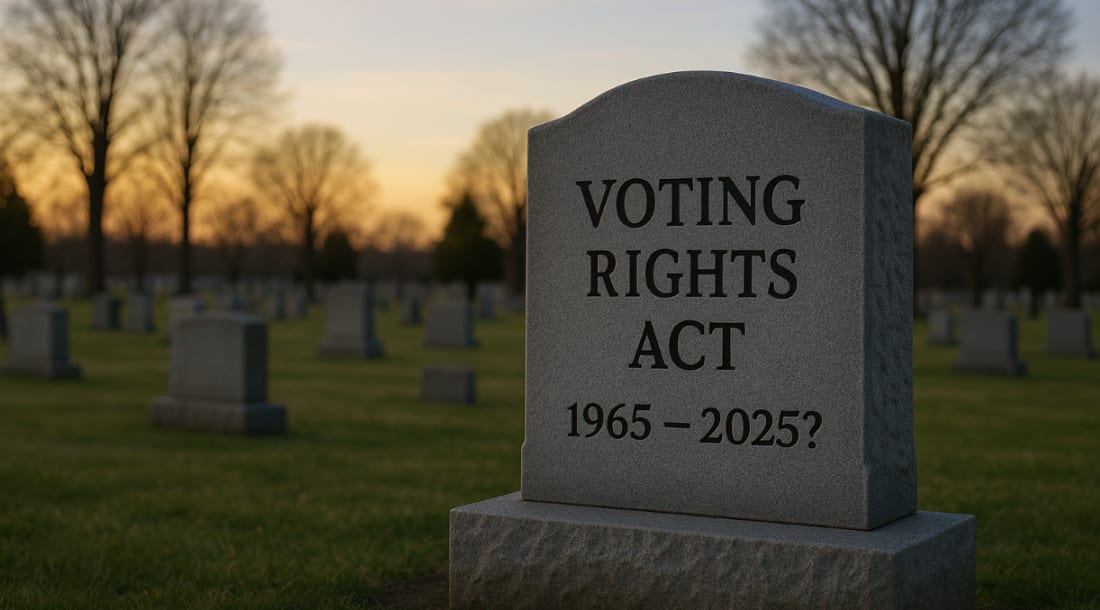|
 |
The Make-or-Break Supreme Court Case You Don't Know About
A radical court decision has stripped citizens of the right to defend our voting rights. And it’s spreading.
In the Dakotas, the lines on a map tell a story. One that impacts us all.
For decades, Native voters there have fought to make sure their voices weren’t just counted — but heard. In 2024, that effort paid off when three Native American legislators were elected in North Dakota after a federal court found the state’s district maps violated the Voting Rights Act. That win wasn’t just about political power — it was about dignity, fairness, and self-determination.
Now, that victory is in jeopardy. And not just in North Dakota.
Last year, a federal appeals court made a stunning decision: Private citizens can no longer sue to enforce Section 2 of the Voting Rights Act in seven states. That means that unless the federal government brings the case, voters in Arkansas, Iowa, Minnesota, Missouri, Nebraska, North Dakota, and South Dakota may have no legal recourse when their representation is diluted or erased. The ruling flies in the face of decades of precedent — and makes it nearly impossible for individuals and communities to challenge racial discrimination in voting maps.
That’s why Bright America’s is proud to help fuel the effort by our strategic partner Campaign Legal Center — along with Native American tribes and individual voters — that is asking the U.S. Supreme Court to step in and correct course. Because if the ruling stands, it will silence the very people the Voting Rights Act was designed to protect.
When the Government Doesn’t Have Your Back
You might be thinking, “Why can’t the Justice Department just bring these cases?” It could. But we’ve seen what happens when politics infects the DOJ.
The DOJ’s Civil Rights Division has been gutted. Career officials have left in droves. The Department has shifted its focus away from protecting voting rights and toward promoting unfounded claims of voter fraud. And let’s not forget: it was the DOJ that argued to uphold the North Dakota maps that discriminated against Native voters.
That’s why it matters so much that private citizens and civic groups can step in — which has never guaranteed they’d win, but has always meant they have a chance. Because too often, the institutions we count on to defend democracy are MIA when we need them most.
This Case Isn’t Just About Maps. It’s About Power.
The fight over redistricting is a fight over who has power in America. If voters can’t challenge unfair maps, then politicians can draw the lines to protect themselves — not the people. Gerrymandering becomes a tool to dilute votes, entrench incumbents, and exclude communities.
It’s not an accident that the people most often silenced by unfair maps are Black, Latino, and Native voters. The maps are the mechanism. But the goal is the same: to keep power out of the hands of those who’ve historically had the least of it.
This is why Bright America exists — to shine a light on structural assaults on democracy and to rally people who refuse to let them stand.
What Happens Next
The Supreme Court has a chance — and a responsibility — to fix this. If it affirms the lower court ruling, it will render a key piece of the Voting Rights Act essentially unenforceable in nearly one-fifth of the country. But if it reverses the decision, it will send a powerful message: that voters still have the right to stand up and be counted, and that the courts are still a place where justice can be found.
We know what side of history we’re on. And we know what’s at stake if we let this slide.
At Bright America, we believe that defending democracy doesn’t happen from the sidelines. It takes vigilance, persistence, and people willing to show up — in courtrooms, on ballots, and in the public square — to say: “We see what you’re doing. And we won’t let it happen.”
Because once the right to vote — and the power to protect it — disappears, it doesn’t come back easily.
Upcoming Events for Democracy
The Fight to Abolish Felony Disenfranchisement
July 21st - Virtual Panel Event
One Million Rising: Strategic Non-Cooperation to Fight Authoritarianism
July 30th and August 13th - Virtual Training Event


